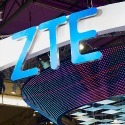China's ZTE Comes Off US Trade Blacklist
Chinese vendor will be free to use equipment from US suppliers after saying it broke export rules and agreeing to pay a hefty fine.

China's ZTE is to come off a blacklist of companies that face US trade restrictions after it agreed earlier this month to pay a $900 million fine for previous abuses. (See ZTE to Pay $892M Fine to Settle US Trade Dispute.)
The move, which was widely anticipated after ZTE Corp. (Shenzhen: 000063; Hong Kong: 0763) took full responsibility for earlier wrongdoing, frees up the Chinese vendor to continue dealing with US suppliers such as Intel Corp. (Nasdaq: INTC), whose products it uses in its own.
Last year, ZTE was charged with violating US trade rules by selling equipment to sanctions-hit Iran -- and specifically to Iran's national carrier -- that included components made by US companies.
After imposing trade restrictions on the Chinese vendor, US authorities temporarily allowed it to maintain links with its US suppliers while an investigation was underway.
Worried about the impact of such restrictions, and facing serious charges, ZTE earlier this month pleaded guilty to the offenses and said it would pay a fine of nearly $900 million to settle matters.
Provision for that fine wiped out profits for the first three months of the year, but remaining on the blacklist could have dealt a much bigger blow to ZTE by disrupting its supply chains and relationships with US technology specialists. (See ZTE Suffers $340M Net Loss on US Fine.)
Amid all the talk about trade wars between China and the US, the case illustrates just how much clout the US has thanks to its technology industry and the global importance of the companies within it.
The resolution does not appear to have any bearing on ZTE's dealings with US service providers, which have been advised by US authorities since 2012 not to use equipment and services from ZTE or national rival Huawei Technologies Co. Ltd. in their networks.
Policymakers have argued the two companies pose a potential security threat, but critics have seen that particular move as a form of protectionism.
For all the latest news from the wireless networking and services sector, check out our dedicated mobile content channel here on Light Reading.
Besides paying a fine and admitting responsibility for breaching US export rules, ZTE has taken other dramatic steps to improve "compliance" within its organization since the affair first came to light.
Implicated in the wrongdoing, former CEO Shi Lirong left ZTE soon after the initial reports surfaced and was replaced by Zhao Xianming, ZTE's former chief technology officer.
Since then, Zhao has set up new compliance committee within ZTE, made investments in automated systems and recruited a US lawyer as its head of compliance.
In mid-March it also appointed a new chairman in the form of Yin Yimin, who was previously the chairman of ZTE shareholder ZTE Holdings. (See China's ZTE Gets New Chairman – Report.)
Zhao had previously been chairman, as well as executive director and president, and the move may have been designed to burnish ZTE's corporate image by ensuring a single individual no longer holds all three roles.
"Today, ZTE is turning the page on a challenging chapter in our past and is optimistic of our future," said Zhao in a company statement. "By acknowledging the mistakes we made, taking responsibility for them, and remaining focused on enacting positive change in our company, we are committed to a ZTE that is fully compliant, healthy and trustworthy."
On the business front, things appear to have been looking up for ZTE recently. In December, it was reported to have landed a €1 billion ($1.1 billion) deal in Italy to manage networks for Russia's VimpelCom Ltd. (NYSE: VIP) and Hong Kong's Hutchison, which are merging their operations in the country.
Bengt Nordström, the CEO of the Northstream consulting and market research business, is encouraged by what he sees, recently telling Light Reading that he believes ZTE could make a "comeback" under its new management.
The deal in Italy represents a major setback for ZTE rival Ericsson AB (Nasdaq: ERIC), which had previously managed Hutchison's network and part of VimpelCom's, according to press reports.
Announcing a new strategy earlier this week, and hinting at plans to sell its media and cloud hardware businesses, Ericsson said it would take a $1.7 billion hit in the first quarter of this year as a result of impairment charges, restructuring costs and "negative customer developments." (See Ericsson Tightens Focus, Warns of $1.7B Q1 Hit and Ekholm's Vision of Slimmer Ericsson Lacks Detail & Dazzle.)
— Iain Morris, 

 , News Editor, Light Reading
, News Editor, Light Reading
About the Author(s)
You May Also Like












